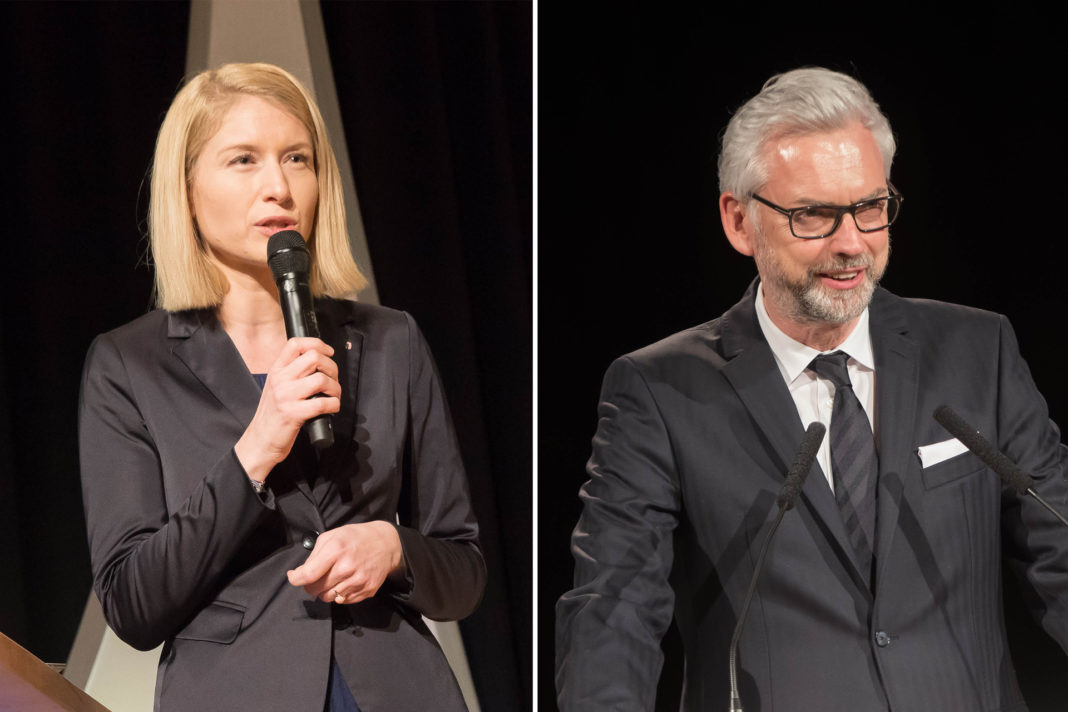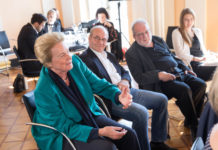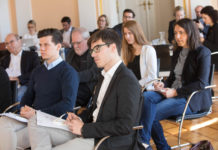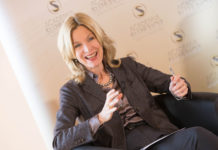We live in a time when not only the future, but also our idea of the future is rapidly changing. Digital technologies are increasingly influencing our world. On the one hand, this makes the world in which we live more foreseeable or even controllable – for example when trying to find out when signs of wear show in machines and spare parts have to be installed – but, on the other hand, it is often more surprising – for example in the case of unforeseen influences on opinion-forming processes through digital communication channels.
“OUR VISION OF THE FUTURE IS CHANGING VERY RAPIDLY WITH NEW TECHNOLOGIES.”
In Daniel Kehlmann’s novel Measuring the World he writes:“Whenever things were frightening, it was a good idea to measure them.” The book is about the journey of two German science geniuses who could not be more different. Both are driven by their thirst for research and want to discover the world. The quote shows that our increasing “measurement of the future” also comes from two central and deeply human instincts: the need for security and the desire to discover new things.
If we do not know what to expect, if we are uncertain about decisions, it is good to have technologies at our disposal that help us figure out dimensions, classify facts, form opinions, recognize proportionality and categorize outcomes. Insights gained in this way guide us in our reflections, strategies and actions, thus creating an alleged certainty, which has sometimes turned out to be misleading. This inevitably raises the question: What if the tables turn? If the measurer becomes the measured one? If it is not us who control and influence technology but the other way around? Is measuring and being measured a give and take? Does “Measuring the Future” lead to better results and understanding or does it only suggest a sense of security?
Privacy: The whole picture
Privacy is an important and valuable commodity. This is a political and social mission. However, in the face of technological possibilities, most people, consciously or unconsciously, out of lack of knowledge or conviction, for convenience or lack of alternatives, are less careful about their privacy. On the one hand, there is the protection of privacy, which is to be preserved for citizens at all costs. On the other hand, the idea of sharing data stands for better and more accurate analyses and predictions for the benefit of the whole (“sharing is caring”). In between, there is a thin line for an open dialogue between politics, society and the economy. In order to create suitable framework conditions for the protection of the individual and the well-being of the community, the international community is required.
“WE SHOULD NOT JUST DRIVE BY SIGHT; WE ALSO NEED TO THINK AHEAD.”
Social robots with clear rules for man and machine
In the light of demographic change, we face major challenges in both the workforce and the care and welfare facilities. Social robots supporting these sectors could be a great asset for preserving existing systems. As paradoxical as it may sound, technological progress may be the key to more humanity and dignity in dealing with one another.
A prerequisite for the success of this development is a clear set of rules for both robots and the people they should serve. One goal must be to develop models together that are ethical and respectful toward one another.
The sum of two worlds
In times like these, playing off the analogous against the digital world is a step in the wrong direction for both worlds. The discussions repeatedly emphasized that one should not compare existing faulty systems with perfect digital solutions, but with equally faulty but perhaps better overall digital solutions. Is it justified to ask for 100% accident-free self-driving vehicles as long as people cause far more accidents than that on the roads? The point here is to place the mutual expectations and hopes for new technologies in a realistic framework.
The question will be: How can we integrate these new technologies so that our society remains appreciative, sympathetic, open, able to give and take criticism and responsible? Only then will we succeed in making the sum of the two worlds yield more than its individual parts.






